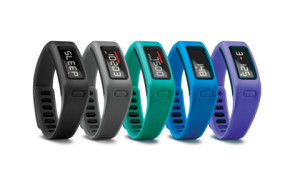 The University of Texas Medical Branch at Galveston has taken a hard look at 13 fitness trackers to determine if they’re likely to actually help people improve their health. researchers found that most of them do, although none do everything they might to help their wearers past frequent problems. (Scroll down the linked page to read the full report.)
The University of Texas Medical Branch at Galveston has taken a hard look at 13 fitness trackers to determine if they’re likely to actually help people improve their health. researchers found that most of them do, although none do everything they might to help their wearers past frequent problems. (Scroll down the linked page to read the full report.)
The researchers found that all the devices supported the basic tenets of fitness: move more, eat less. They improve on pedometers by collecting and reporting on more detailed activity and more types of activity. But none of them give tips for doing fitness activity correctly or more efficiency, and few to none helps their users get past activity plateaus. For changing habitual behavior, in fact, fitness-oriented video games may work better.
To some extent, the researchers say, the functionality they’re looking for may beyond the ability of a tracker to provide, although it may be an interesting future revenue stream. From the report:
Individualized problem solving would likely be a complex undertaking that would require self-report of barriers and a system for providing automated counseling. Such a system might increase app size unacceptably or be difficult to program. Action planning and commitment occurred in the context of specific challenges that users pledged or committed to undertaking. Gamification such as this appears to be a promising avenue…
Left unmeasured is the accuracy of fitness trackers, which we have found to be suspect, at best. But this is an interesting survey study that has implications for the inclusion of trackers into standard medical practice.